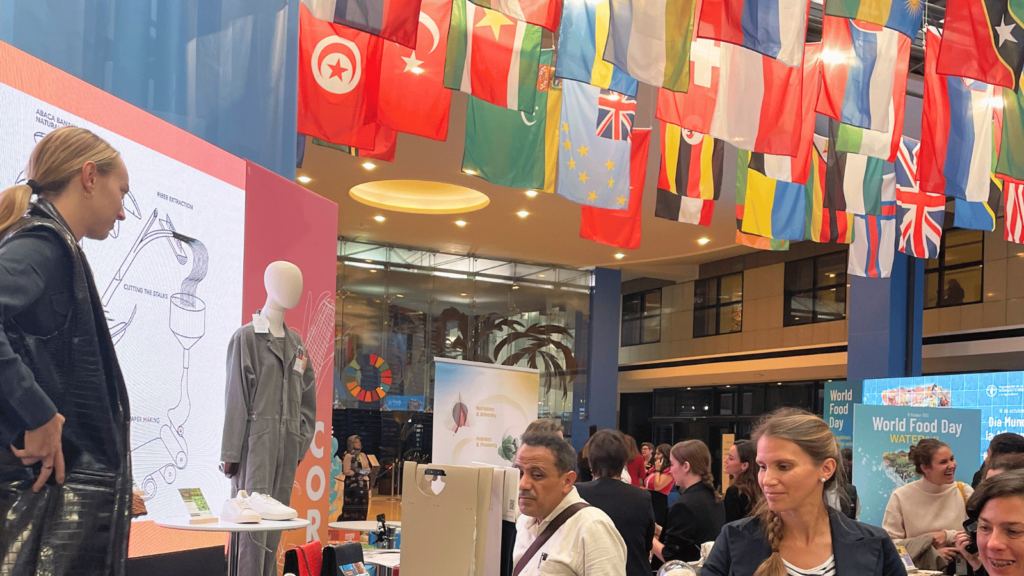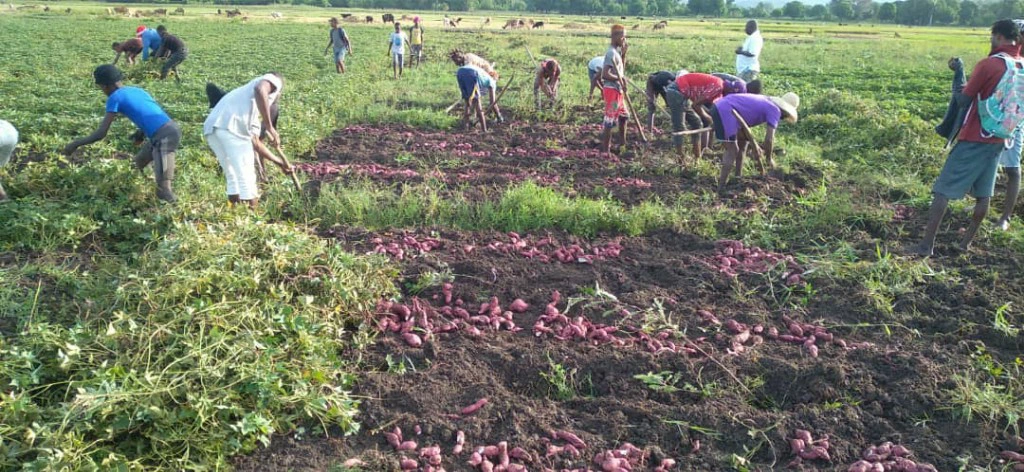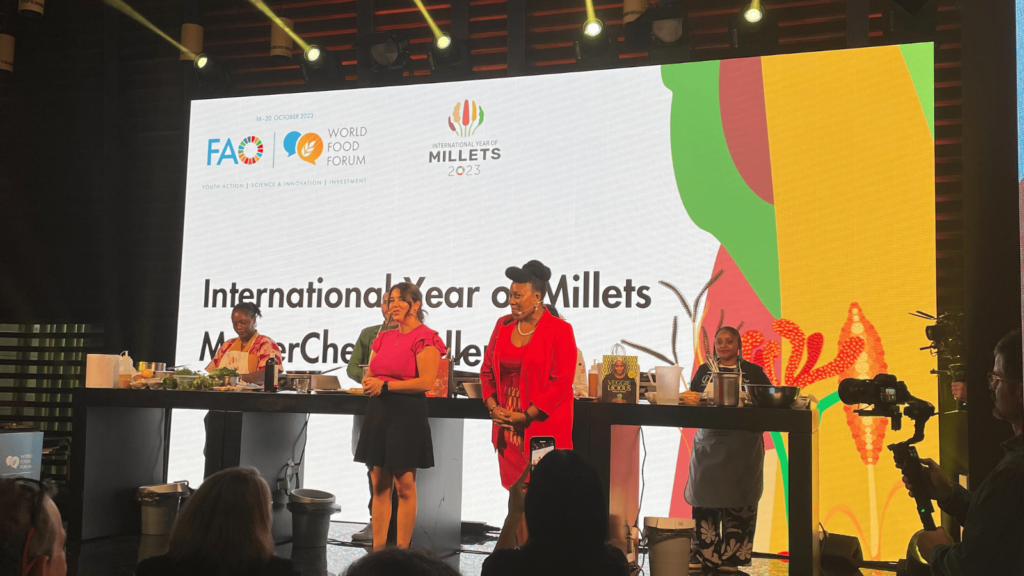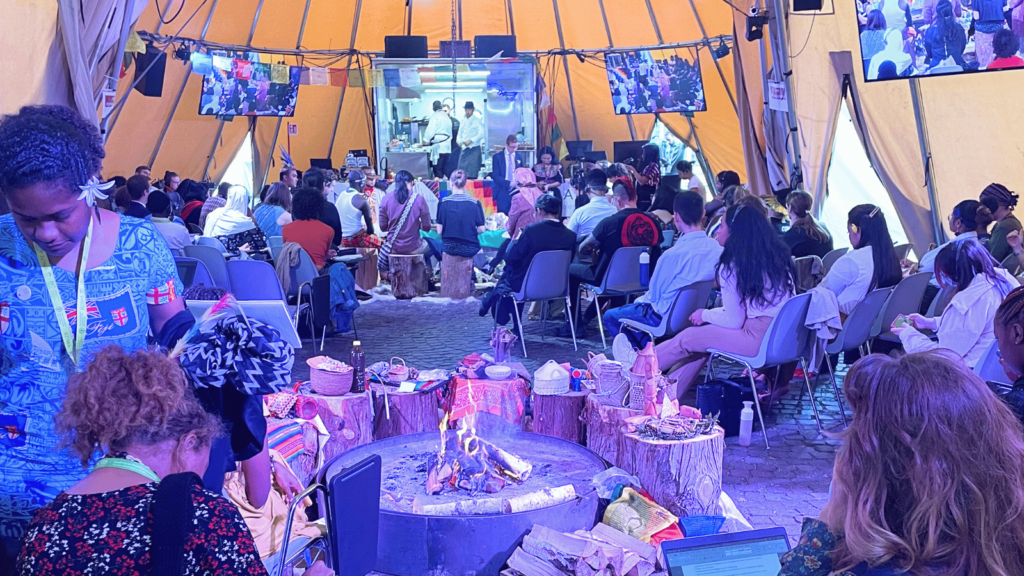The World Food Forum (WFF) is an independent, youth-led global network of partners facilitated and hosted by the Food and Agriculture Organization of the United Nations (FAO). Its global movement aims to empower young people to shape agrifood systems to achieve the Sustainable Development Goals (SDGs). The WFF is the premier forum of its kind to invite youth to identify solutions and initiate action for agrifood systems.
Every October since 2021, the World Food Forum hosts its annual flagship event in Rome and online. The event gathers people from all over the world, of all ages and backgrounds, to get together and find pathways for action, impact and acceleration on all levels towards sustainable agrifood systems for all. Various groups, including civil society, academia, the private sector, governments and UN organizations, gather at FAO headquarters in Rome for five days to participate in cooking shows, masterclasses, roundtables, exhibitions and assemblies.
The 2023 Flagship event
The World Food Forum 2023 was held on 16-20 October around the theme “Agrifood systems transformation accelerates climate action” and was organised into three interlinked fora – the WFF Global Youth Forum, the FAO Science and Innovation Forum and the FAO Hand-in-Hand Investment Forum. Over 6000 people from all over the world, mostly youth, participated in Rome. More than 20,000 people connected through the virtual platform.
At the FAO headquarters, attendees played games, heard presentations, and engaged in activities such as Gorilla Conservation Coffee in Uganda, the Transformative Research Challenge (TRC), the Youth Food Lab (YFL) and Startup Innovation Awards (SIA). These events showcased youth innovators, entrepreneurs and researchers, and their solutions for a sustainable agrifood system.
During the 2nd Session of the Biennial UN Global Indigenous Youth Forum, which took part in parallel to WFF, two nomadic tents outside the atrium hosted discussions around the challenges faced by indigenous youth and the solutions needed for sustainable food systems and cooking showcases by indigenous peoples from Sápmi to Panama.



